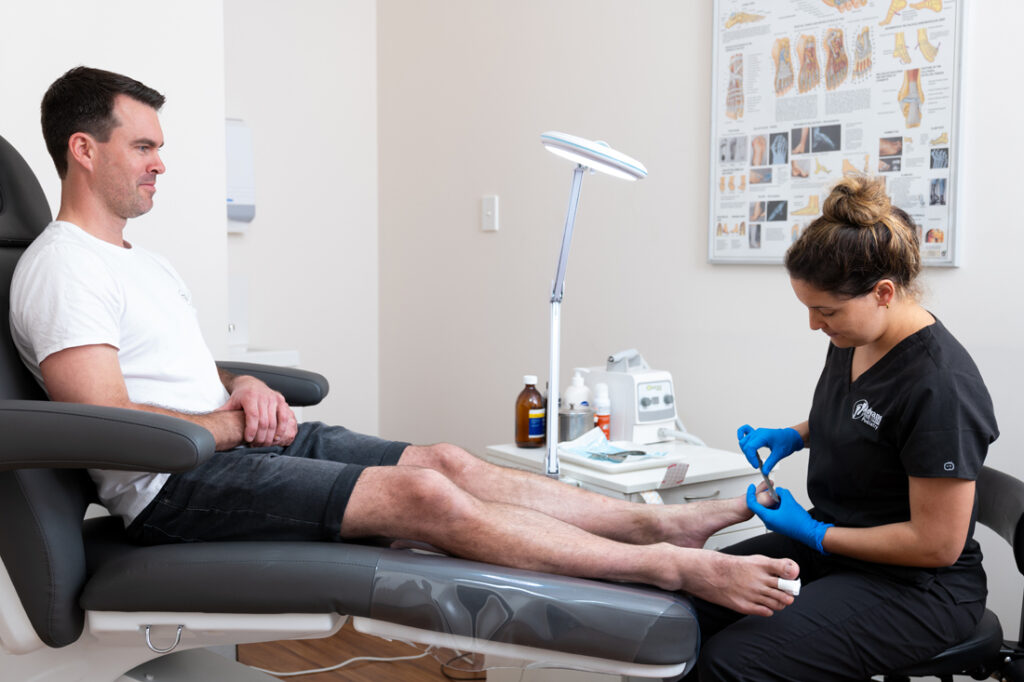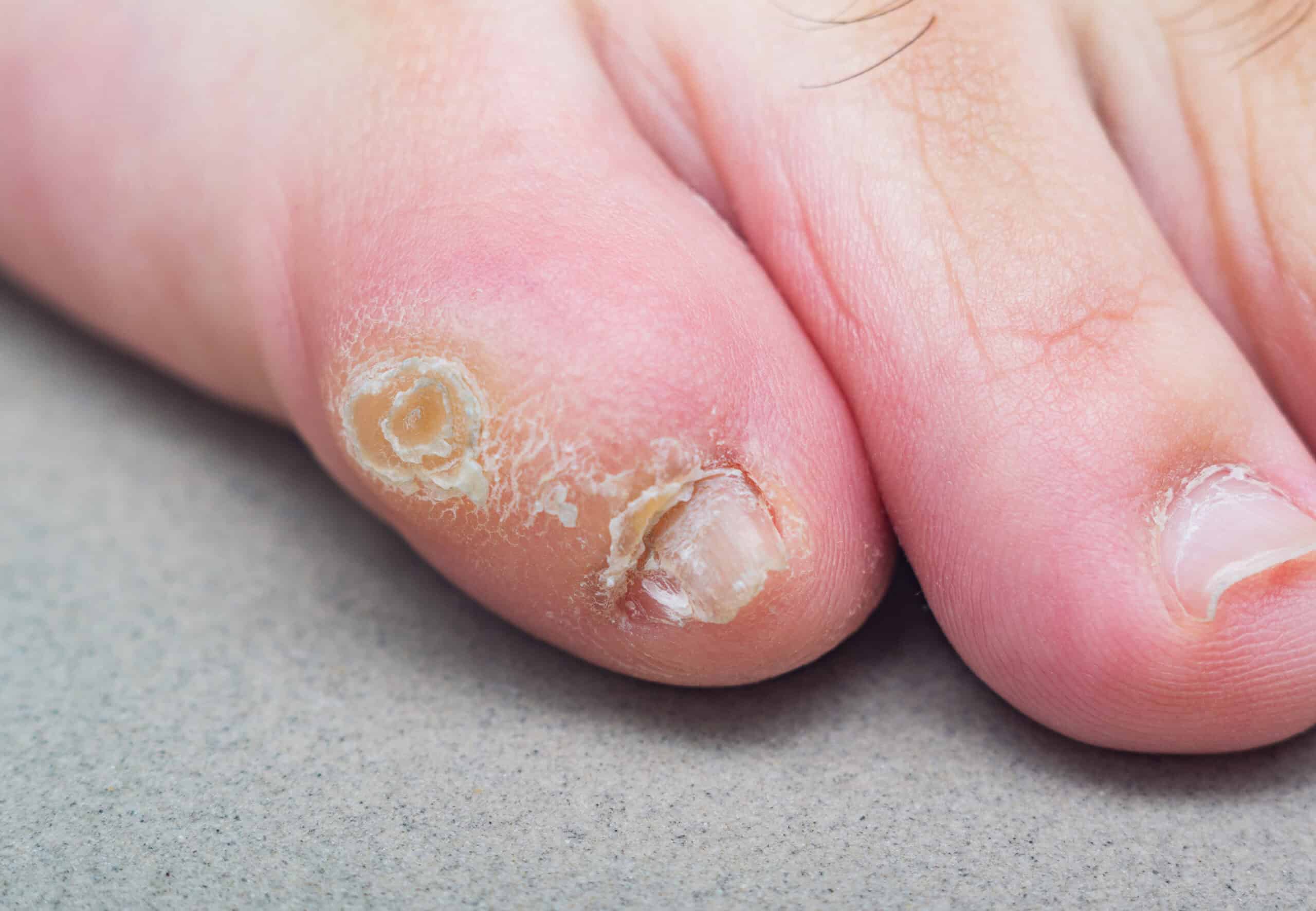Dealing with corns on your feet can be uncomfortable and even painful, but the right effective treatment for corns can bring fast relief. Corns are hard, thickened areas of skin that develop due to friction or pressure. They can make walking or standing difficult, but fortunately, there are effective ways to treat and prevent them. Whether you’re looking for professional treatment or home remedies, this guide will walk you through the best corn treatment options available today.
What is a corn?
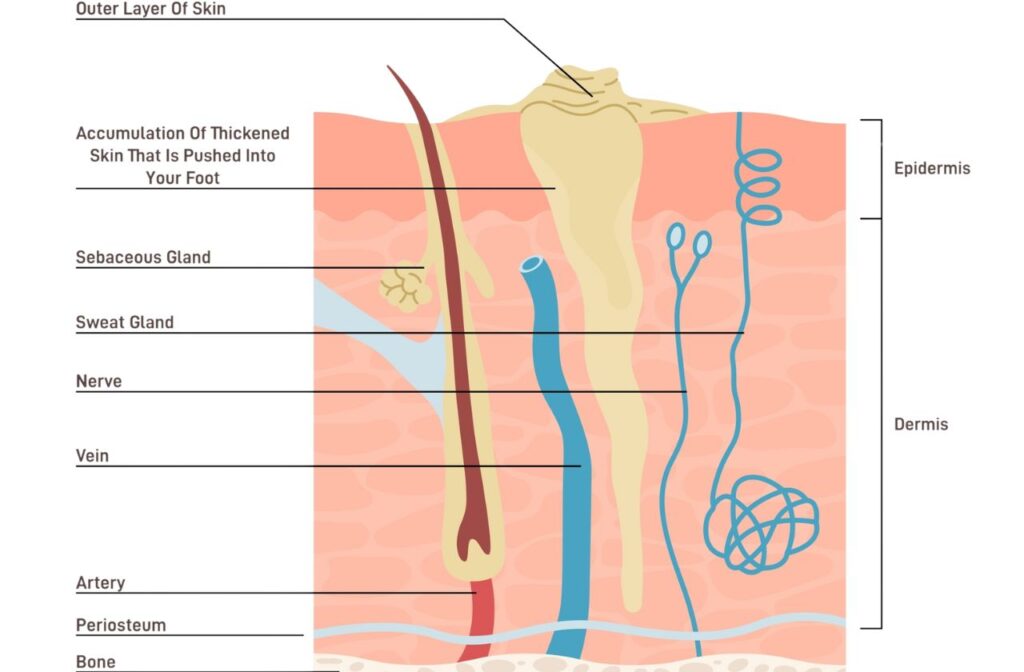
Before diving into the best treatment for corns, it’s essential to understand what they are and why they develop.
Corns are small, circular areas of thick skin that most often form on the tops and sides of toes or on the sole of the foot. They occur when repeated pressure or friction irritates the skin. This is usually due to ill-fitting shoes, prolonged standing, or improper walking patterns.
Two types of different corns:
Corns are typically classified into two types:
- Hard corns: These are dense, firm areas of skin that form on bony parts of the foot and are usually smaller.
- Soft corns: These are whitish and rubbery and often appear between toes where moisture builds up.
While corns are not dangerous, they can cause discomfort, and if left untreated, they can lead to infections, particularly in people with diabetes or circulation issues.
Signs and Symptoms of Corns
Recognizing the signs early can help you seek out appropriate treatment for corns before they worsen. Some common symptoms include:
- A thickened area of skin that feels rough or hard
- Pain when pressure is applied to the affected area
- Dry or waxy skin in the affected region
- Inflammation or swelling
If you notice these symptoms, it’s time to consider corn treatment options to alleviate the pain and stop further complications.
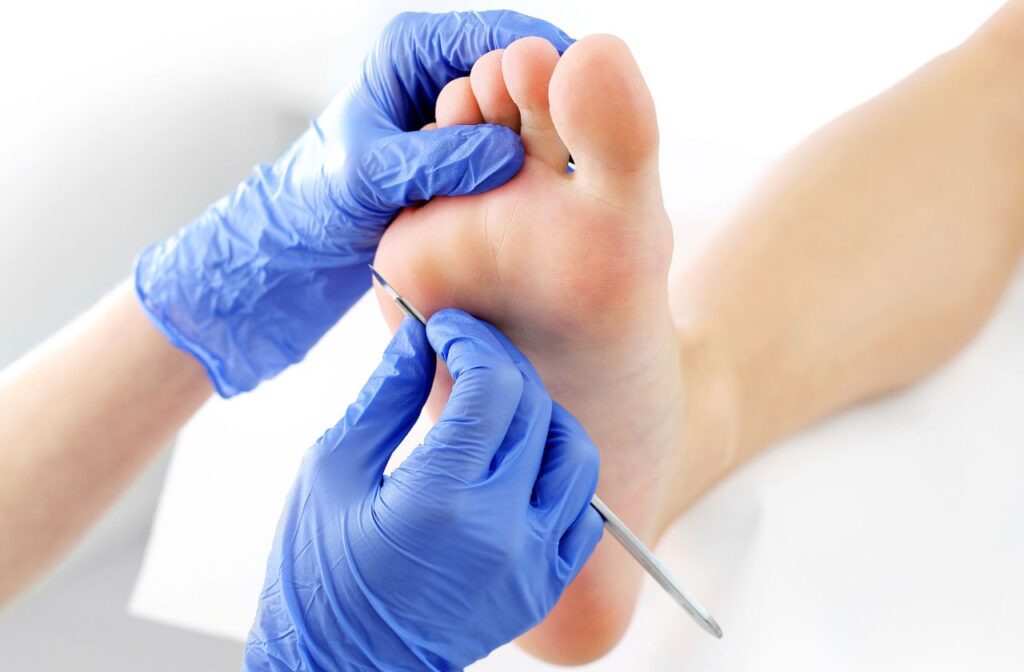
Effective Treatment for Corns
Fortunately, there are many ways to manage corns effectively. Let’s explore the different options for corn treatment:
1. Professional Podiatry Treatment for Corns
Seeing a podiatrist is one of the most reliable ways to receive a corn treatment that delivers lasting results. Podiatrists have specialised knowledge and tools to remove corns safely and advise on how to prevent them from returning. Here’s what you can expect during a professional podiatry treatment for corns:
- Corn Removal: The podiatrist will carefully remove the dead skin using a scalpel, which provides immediate relief from pressure and pain. It’s a simple procedure that’s often painless and quick.
- Padding and Strapping: To reduce friction and pressure, a podiatrist may apply padding to the affected area either on your foot or in your shoes. This helps protect the skin while it heals and prevents future corns from developing.
- Orthotic Solutions: If corns result from biomechanical issues (such as poor foot alignment), custom orthotics may be recommended. These devices redistribute pressure evenly across your foot, reducing the chances of corns forming in the future.
- Silver Nitrate Application: For stubborn corns that seem to just keep forming, a podiatrist may apply Silver Nitrate for you. This application is in the form of moisture-activated special applicators, which place a small amount of silver nitrate on the corn’s area, avoiding the surrounding healthy skin. Silver Nitrate is a caustic chemical designed to kill skin cells and slow-down their re-formation.The corn will turn black, and should grow back slower than normal, if it grows back at all.
By seeking professional care, you not only get immediate relief but also learn how to prevent further complications.
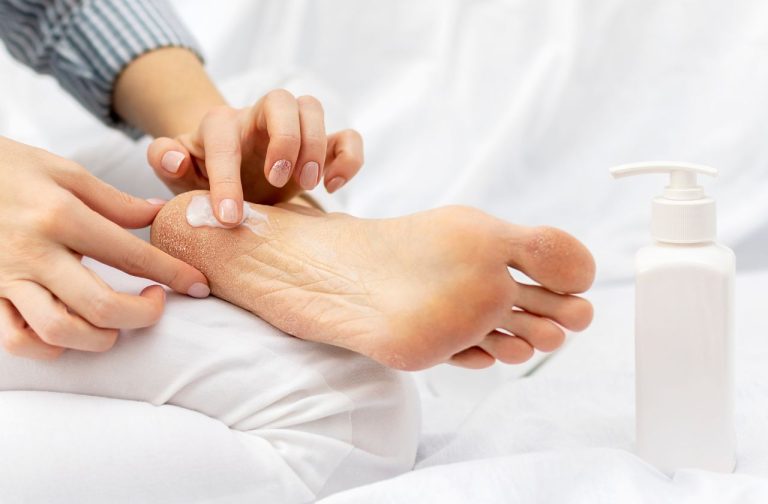
2. At-Home Corn Treatment Options
If visiting a podiatrist isn’t an option right away, there are several corn treatment remedies you can try at home. While these methods may not be as effective as professional care, they can help reduce discomfort:
- Over-the-Counter Corn Pads: We recommend you stay away from these. These adhesive pads contain salicylic acid, which helps soften and break down the hardened skin. Irritation to the surrounding skin is very common and as podiatrists we do not recommend them, especially if you are diabetic.
- Soaking and Exfoliation: Soaking your feet in warm water for about 10 minutes can soften the corn. After soaking, gently rub the area with a pumice stone to remove dead skin. This simple routine can reduce the thickness of the corn over time.
- Moisturising Creams: Using a thick, moisturising foot cream with Urea (e.g. 15% Urea cream) can keep the skin soft and hydrated, which helps prevent the formation of new corns. Apply cream daily to areas prone to corns, especially after exfoliation.
- Proper Footwear: One of the most effective at-home strategies for corn treatment is wearing well-fitted, supportive shoes. Make sure your shoes provide enough room for your toes and avoid heels that put extra pressure on the front of your foot. Often increasing the width of your shoes will help dramatically with corns.
When to Avoid Self-Treatment for corns
While at-home remedies can be helpful, there are times when self-treatment for corns can be risky, particularly if you have:
- Diabetes
- Poor circulation
- Any condition that affects your immune system
In such cases, it’s crucial to seek professional treatment for corns to avoid infections or complications. Attempting to remove a corn yourself may cause more harm than good, so always consult a podiatrist for guidance.
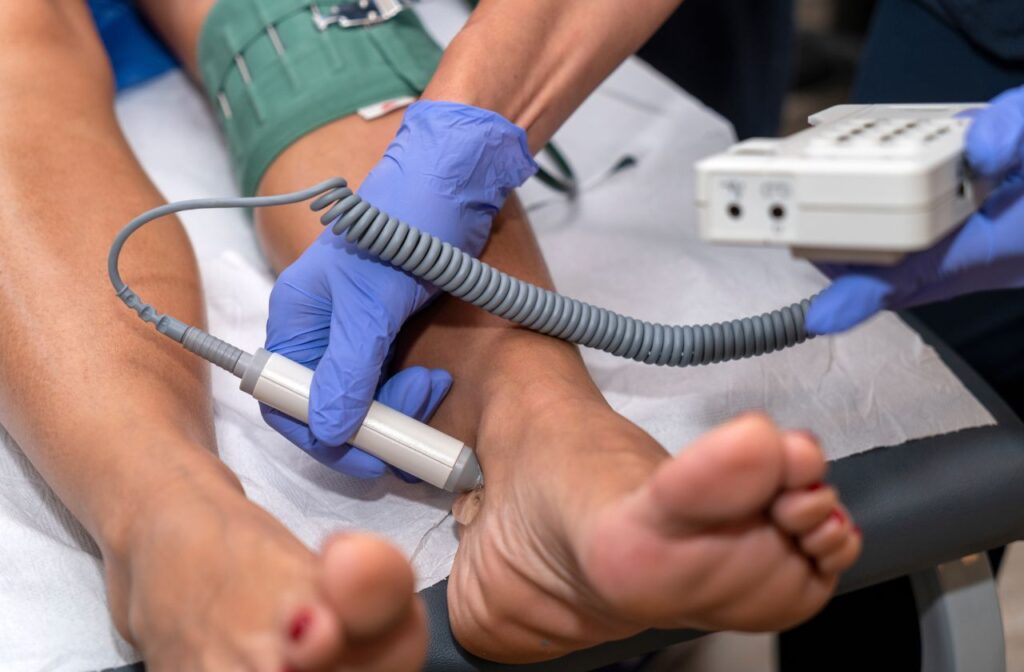
Preventing Corns: What You Can Do
Preventing corns is just as important as treating them. Incorporating a few simple habits into your daily routine can go a long way in keeping your feet healthy and corn-free. Here are some tips for effective corn prevention:
- Wear Properly Fitted Shoes: Ill-fitting shoes are one of the leading causes of corns. Choose footwear with a wide toe box and plenty of cushioning to prevent pressure points from forming.
- Use Foot Pads or Insoles: If you’re prone to developing corns, using cushioned foot pads or custom orthotics can help alleviate pressure and prevent friction on vulnerable areas of your feet.
- Trim Your Toenails Properly: Long toenails can push your toes into uncomfortable positions inside your shoes, leading to corns. Make sure to trim your nails regularly and straight across to avoid this issue.
- Moisturise Your Feet Regularly: Keeping your skin soft and smooth reduces the risk of corns. Apply a foot-specific moisturiser daily, especially in areas that tend to develop corns.
- Address Underlying Foot Issues: If you have an abnormal gait or foot deformities, consider consulting a podiatrist for a thorough assessment. Correcting these problems can reduce the pressure that leads to corns.

The Benefits of Early Treatment of Corns
Addressing corns early is critical in preventing the issue from worsening. When you get the right treatment for corns promptly, you can:
- Avoid infections and further complications
- Reduce pain and discomfort
- Improve your mobility and comfort when walking or standing
- Prevent new corns from forming
Remember, the best corn treatment strategy involves a combination of professional care, proper foot hygiene, and preventive measures. If you’re dealing with painful corns, don’t hesitate to seek help from your local Advance Foot Clinic podiatrist to ensure you get the best possible care.
Get Effective Treatment for Corns
Corns may be common, but they don’t have to interfere with your quality of life. With the right treatment for corns, you can enjoy pain-free feet and prevent future issues. Whether you choose to visit a podiatrist for professional care or try at-home remedies, it’s essential to take action early and make preventive care a priority.
If you’re struggling with recurring corns or want to know more about corn treatment options, contact Advance Foot Clinic Podiatry today. The team is here to help you find lasting relief and get back on your feet—comfortably!
